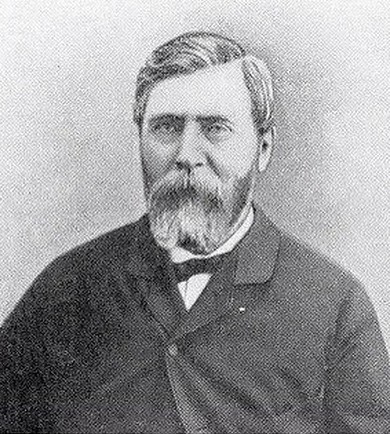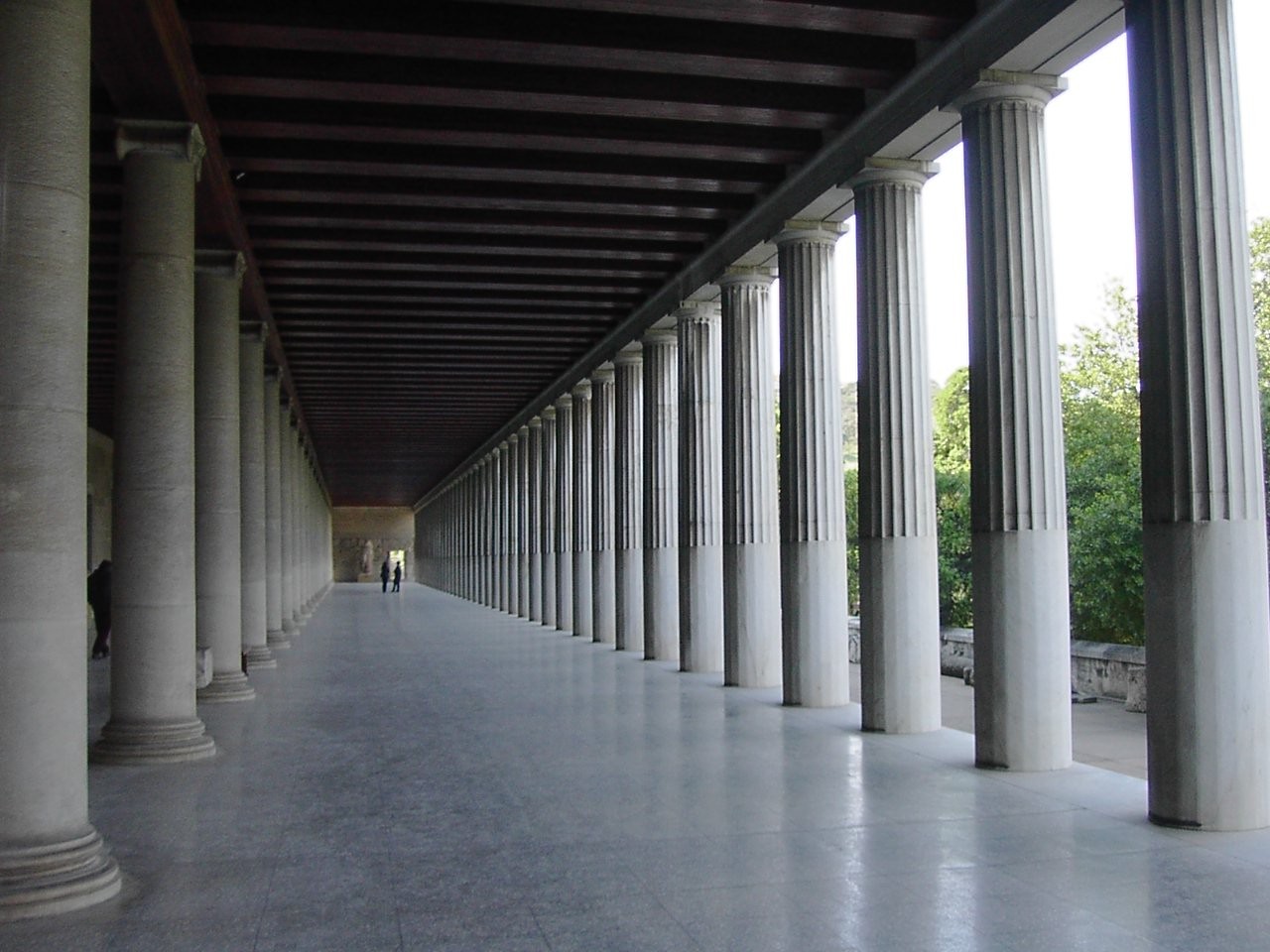|
Selâhattin Kantar
Ömer Selahattin Kantar (1878 in İzmir, Ottoman Empire – 17 November 1949 in İzmir, Turkey) was a Turkish archaeologist, museum director, journalist and playwright. In 1927, he became the founding director of İzmir Archaeology Museum and he held this post until his death. Between 1932 and 1941, he was responsible for the first organized archaeological excavations at the site of the ancient city of Smyrna, a task he carried out jointly with the German archaeologist Rudolf Naumann. Opening up of a large part of Smyrna's Agora, location of İzmir Agora Open Air Museum today, is due to their work. Naumann and Kantar published the results of their findings for the first time in 1935, with a final version having appeared after Kantar's death in 1950. See also * Charles Texier * Ekrem Akurgal Ekrem Akurgal (March 30, 1911 – November 1, 2002) was a Turkish archaeologist. During a career that spanned more than fifty years, he conducted definitive research in several sites a ... [...More Info...] [...Related Items...] OR: [Wikipedia] [Google] [Baidu] |
İzmir
İzmir is the List of largest cities and towns in Turkey, third most populous city in Turkey, after Istanbul and Ankara. It is on the Aegean Sea, Aegean coast of Anatolia, and is the capital of İzmir Province. In 2024, the city of İzmir had a population of 2,938,292 (in eleven urban districts), while İzmir Province had a total population of 4,493,242. Its built-up (or metro) area was home to 3,264,154 inhabitants. It extends along the outlying waters of the Gulf of İzmir and inland to the north across the Gediz River Delta; to the east along an alluvial plain created by several small streams; and to slightly more rugged terrain in the south. İzmir has more than 3,000 years of recorded history, recorded urban history, and Yeşilova Höyük, up to 8,500 years of history as a human settlement since the Neolithic period. In classical antiquity, the city was known as Smyrna – a name which remained in use in English and various other languages until around 1930, when governmen ... [...More Info...] [...Related Items...] OR: [Wikipedia] [Google] [Baidu] |
Charles Texier
Félix Marie Charles Texier (22 August 1802, Versailles – 1 July 1871, Paris) was a French historian, architect and archaeologist. Texier published a number of significant works involving personal travels throughout Asia Minor and the Middle East. These books included descriptions and maps of ancient sites, reports of regional geography and geology, descriptions of art works and architecture, et al. Trained as an architect at the École des Beaux-Arts in Paris, he was appointed inspector of public works in 1827. He conducted excavations of the port cities of Fréjus and Ostia.Prosopo Sociétés savantes de France In 1833 he was sent on an exploratory mission to , where, in 1834, he discovered the ruins of the ancient [...More Info...] [...Related Items...] OR: [Wikipedia] [Google] [Baidu] |
Turkish Writers
Turkish may refer to: * Something related to Turkey ** Turkish language *** Turkish alphabet ** Turkish people, a Turkic ethnic group and nation *** Turkish citizen, a citizen of Turkey *** Turkish communities in the former Ottoman Empire * The word that Iranian Azerbaijanis use for the Azerbaijani language * Ottoman Empire (Ottoman Turkey), 1299–1922, previously sometimes known as the Turkish Empire ** Ottoman Turkish, the Turkish language used in the Ottoman Empire * Turkish Airlines, an airline * Turkish music (style), a musical style of European composers of the Classical music era * Turkish, a character in the 2000 film '' Snatch'' See also * * * Turk (other) * Turki (other) * Turkic (other) * Turkey (other) * Turkiye (other) * Turkish Bath (other) * Turkish population, the number of ethnic Turkish people in the world * Culture of Turkey * History of Turkey ** History of the Republic of Turkey * Turkic languages ... [...More Info...] [...Related Items...] OR: [Wikipedia] [Google] [Baidu] |
Turkish Journalists
Turkish may refer to: * Something related to Turkey ** Turkish language *** Turkish alphabet ** Turkish people, a Turkic ethnic group and nation *** Turkish citizen, a citizen of Turkey *** Turkish communities in the former Ottoman Empire * The word that Iranian Azerbaijanis use for the Azerbaijani language * Ottoman Empire (Ottoman Turkey), 1299–1922, previously sometimes known as the Turkish Empire ** Ottoman Turkish, the Turkish language used in the Ottoman Empire * Turkish Airlines, an airline * Turkish music (style), a musical style of European composers of the Classical music era * Turkish, a character in the 2000 film '' Snatch'' See also * * * Turk (other) * Turki (other) * Turkic (other) * Turkey (other) * Turkiye (other) * Turkish Bath (other) * Turkish population, the number of ethnic Turkish people in the world * Culture of Turkey * History of Turkey ** History of the Republic of Turkey * Turkic languages ... [...More Info...] [...Related Items...] OR: [Wikipedia] [Google] [Baidu] |
1949 Deaths
Events January * January 1 – A United Nations-sponsored ceasefire brings an end to the Indo-Pakistani War of 1947. The war results in a stalemate and the division of Kashmir, which still continues as of 2025 * January 2 – Luis Muñoz Marín becomes the first democratically elected Governor of Puerto Rico. * January 11 – The first "networked" television broadcasts take place, as KDKA-TV in Pittsburgh, Pennsylvania, goes on the air, connecting east coast and mid-west programming in the United States. * January 16 – Şemsettin Günaltay forms the new government of Turkey. It is the 18th government, last One-party state, single party government of the Republican People's Party. * January 17 – The first Volkswagen Beetle, VW Type 1 to arrive in the United States, a 1948 model, is brought to New York City, New York by Dutch businessman Ben Pon Sr., Ben Pon. Unable to interest dealers or importers in the Volkswagen, Pon sells the sample car to pay his ... [...More Info...] [...Related Items...] OR: [Wikipedia] [Google] [Baidu] |
1878 Births
Events January * January 5 – Russo-Turkish War: Battle of Shipka Pass IV – Russian and Bulgarian forces defeat the Ottoman Empire. * January 9 – Umberto I becomes King of Italy. * January 17 – Russo-Turkish War: Battle of Philippopolis – Russian troops defeat the Ottoman Empire. * January 23 – Benjamin Disraeli orders the British fleet to the Dardanelles. * January 24 – Russian revolutionary Vera Zasulich shoots at Fyodor Trepov, Governor of Saint Petersburg. * January 28 – In the United States: ** The world's First Telephone Exchange begins commercial operation in New Haven, Connecticut. ** '' The Yale News'' becomes the first daily college newspaper in the U.S. * January 31 – Turkey agrees to an armistice at Adrianople. February * February 2 – Greece declares war on the Ottoman Empire. * February 7 – Pope Pius IX dies, after a 31½ year pontificate (the longest definitely confirmed). * February 8 & ... [...More Info...] [...Related Items...] OR: [Wikipedia] [Google] [Baidu] |
Ekrem Akurgal
Ekrem Akurgal (March 30, 1911 – November 1, 2002) was a Turkish archaeologist. During a career that spanned more than fifty years, he conducted definitive research in several sites along the western coast of Anatolia such as Phokaia (Foça), Pitane (Çandarlı), Erythrai ( Ildırı) and old Smyrna (Bayraklı höyük, the original site of the city of Smyrna before the city's move to another spot across the Gulf of İzmir). Biography He was born on March 30, 1911, in the town of Tulkarm in the Beirut Vilayet of the Ottoman Empire (today a Palestinian city in the West Bank), where his mother's family owned a large farm. He descended from a family of Ottoman intellectuals and religious men, several of whose members had assumed the office of mufti, the highest title of the Islamic clergy in a given region, for the Ottoman province of Herzegovina. His family moved back to Istanbul when he was two years old. For some time, they resided in another family farm, this time near ... [...More Info...] [...Related Items...] OR: [Wikipedia] [Google] [Baidu] |
Agora
The agora (; , romanized: ', meaning "market" in Modern Greek) was a central public space in ancient Ancient Greece, Greek polis, city-states. The literal meaning of the word "agora" is "gathering place" or "assembly". The agora was the center of the athletic, artistic, business, social, spiritual, and political life in the city. The Ancient Agora of Athens is the best-known example. Origins Early in Greek history (10th–4th centuries BC), free-born citizens would gather in the agora for military duty or to hear statements of the ruling king or council. Later, the agora also served as a marketplace, where merchants kept stalls or shops to sell their goods amid Arcade (architecture), arcades. This attracted artisans who built workshops nearby. From these twin functions of the agora as a political and a commercial spot came the two Greek verbs , ''agorázō'', "I shop", and , ''agoreúō'', "I speak in public". Ancient Agora of Athens The Ancient Agora of Athens was situat ... [...More Info...] [...Related Items...] OR: [Wikipedia] [Google] [Baidu] |
Ottoman Empire
The Ottoman Empire (), also called the Turkish Empire, was an empire, imperial realm that controlled much of Southeast Europe, West Asia, and North Africa from the 14th to early 20th centuries; it also controlled parts of southeastern Central Europe, between the early 16th and early 18th centuries. The empire emerged from a Anatolian beyliks, ''beylik'', or principality, founded in northwestern Anatolia in by the Turkoman (ethnonym), Turkoman tribal leader Osman I. His successors Ottoman wars in Europe, conquered much of Anatolia and expanded into the Balkans by the mid-14th century, transforming their petty kingdom into a transcontinental empire. The Ottomans ended the Byzantine Empire with the Fall of Constantinople, conquest of Constantinople in 1453 by Mehmed II. With its capital at History of Istanbul#Ottoman Empire, Constantinople (modern-day Istanbul) and control over a significant portion of the Mediterranean Basin, the Ottoman Empire was at the centre of interacti ... [...More Info...] [...Related Items...] OR: [Wikipedia] [Google] [Baidu] |
Germany
Germany, officially the Federal Republic of Germany, is a country in Central Europe. It lies between the Baltic Sea and the North Sea to the north and the Alps to the south. Its sixteen States of Germany, constituent states have a total population of over 84 million in an area of , making it the most populous member state of the European Union. It borders Denmark to the north, Poland and the Czech Republic to the east, Austria and Switzerland to the south, and France, Luxembourg, Belgium, and the Netherlands to the west. The Capital of Germany, nation's capital and List of cities in Germany by population, most populous city is Berlin and its main financial centre is Frankfurt; the largest urban area is the Ruhr. Settlement in the territory of modern Germany began in the Lower Paleolithic, with various tribes inhabiting it from the Neolithic onward, chiefly the Celts. Various Germanic peoples, Germanic tribes have inhabited the northern parts of modern Germany since classical ... [...More Info...] [...Related Items...] OR: [Wikipedia] [Google] [Baidu] |




